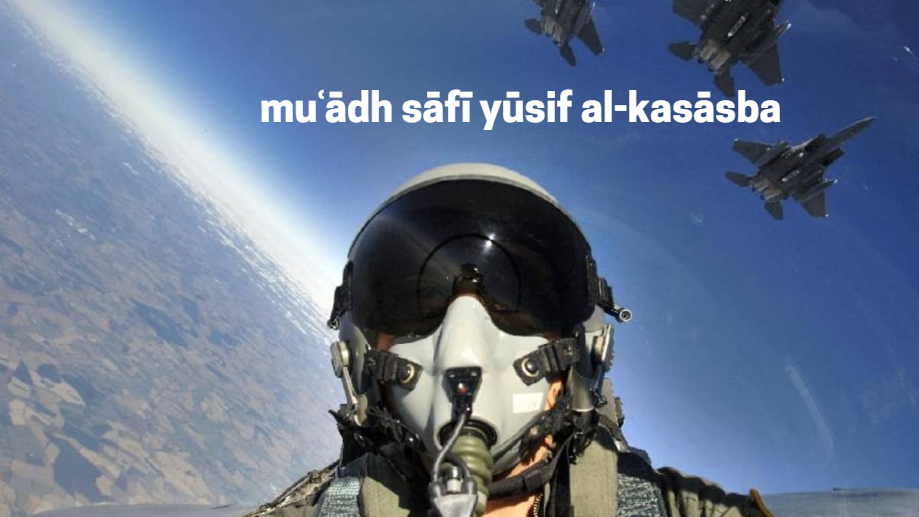Contents
Introduction
Muʿādh Sāfī Yūsif al-Kasāsba, an emblematic figure in modern Middle Eastern history, represents a profound story of courage, tragedy, and the ongoing struggles in the region. Born on May 29, 1988, in Karak, Jordan, al-Kasāsba’s life and ultimate fate have left an indelible mark on global consciousness.
This article aims to provide an in-depth analysis of Muʿādh Sāfī Yūsif al-Kasāsba, exploring his background, significance, and the broader implications of his story. By optimizing the content and headings for the keyword “muʿādh sāfī yūsif al-kasāsba,” this article seeks to rank highly in search engine results and provide valuable insights to our target audience in the USA.
Early Life and Background
Childhood and Education
Muʿādh Sāfī Yūsif al-Kasāsba was born into a prominent Jordanian family in the city of Karak. His upbringing was deeply rooted in Jordanian culture and traditions, with a strong emphasis on education and civic responsibility. Al-Kasāsba showed an early interest in aviation, a passion that would shape his future career.
Military Career
Al-Kasāsba joined the Royal Jordanian Air Force, where he quickly distinguished himself as a talented and dedicated pilot. His commitment to serving his country and protecting its sovereignty earned him respect and admiration among his peers and superiors. By the time he was 26, al-Kasāsba had risen to the rank of Lieutenant, a testament to his skill and dedication.
The Tragic Incident
Capture by ISIS
On December 24, 2014, during a mission against ISIS (Islamic State of Iraq and Syria) in Syria, al-Kasāsba’s F-16 fighter jet was shot down. He ejected and was captured by ISIS militants. This event marked the beginning of a harrowing ordeal that would captivate and horrify the world.
Execution
In January 2015, ISIS released a video showing the brutal execution of Muʿādh Sāfī Yūsif al-Kasāsba. The video depicted him being burned alive, a gruesome act that sparked outrage and condemnation globally.
This barbaric act highlighted the extreme brutality of ISIS and the urgent need for international efforts to combat terrorism.
Global Reaction and Impact
Jordan’s Response
The execution of al-Kasāsba had a profound impact on Jordan. The Jordanian government, led by King Abdullah II, responded with swift and decisive action.
Jordan intensified its military campaign against ISIS, conducting numerous airstrikes in retaliation. The nation united in grief and anger, with al-Kasāsba being hailed as a national hero.
International Condemnation
The international community widely condemned the execution of al-Kasāsba. Leaders from around the world expressed their outrage and solidarity with Jordan.
This incident underscored the global threat posed by ISIS and galvanized efforts to combat terrorism through international cooperation and military intervention.
The Legacy of Muʿādh Sāfī Yūsif al-Kasāsba
Symbol of Resistance
Al-Kasāsba’s story has become a symbol of resistance against terrorism and extremism. His bravery and sacrifice continue to inspire people worldwide to stand against violence and uphold the values of peace and justice.
Memorials and Tributes
In Jordan and beyond, numerous memorials and tributes have been dedicated to Muʿādh Sāfī Yūsif al-Kasāsba. Schools, streets, and public spaces have been named in his honor, ensuring that his legacy endures. These memorials serve as a reminder of the human cost of terrorism and the enduring need for vigilance and resilience.
Analyzing the Broader Implications
The Role of Media
The execution of al-Kasāsba was a stark reminder of the power and influence of media in shaping public perception and response. The widespread dissemination of the video by ISIS was intended to instill fear and propagate their ideology. However, it also backfired by uniting the international community against them.
Human Rights and International Law
The barbaric execution of Muʿādh Sāfī Yūsif al-Kasāsba highlighted critical issues related to human rights and international law.
It underscored the importance of upholding the Geneva Conventions and ensuring that combatants are treated humanely, even in conflict situations. The global outcry also reinforced the need for international mechanisms to hold perpetrators of such atrocities accountable.
Counter-Terrorism Strategies
The incident spurred a re-evaluation of counter-terrorism strategies. It emphasized the need for a multi-faceted approach that includes military action, intelligence sharing, and efforts to counter extremist ideologies.
The international community recognized that defeating terrorism requires both immediate action and long-term strategies to address the root causes of extremism.
Frequently Asked Questions (FAQs)
Who was Muʿādh Sāfī Yūsif al-Kasāsba?
Muʿādh Sāfī Yūsif al-Kasāsba was a Jordanian fighter pilot captured and brutally executed by ISIS in 2015. He is remembered as a national hero and symbol of resistance against terrorism.
How did Muʿādh Sāfī Yūsif al-Kasāsba die?
Al-Kasāsba was captured by ISIS after his jet was shot down during a mission in Syria. He was subsequently executed by being burned alive, a horrific act that drew global condemnation.
What was the global reaction to his execution?
The execution sparked widespread outrage and condemnation from the international community. Jordan responded with intensified military action against ISIS, and the incident galvanized global efforts to combat terrorism.
How has Muʿādh Sāfī Yūsif al-Kasāsba’s legacy been honored?
Numerous memorials and tributes have been dedicated to al-Kasāsba, including schools, streets, and public spaces named in his honor. His legacy continues to inspire efforts against terrorism and extremism.
What are the broader implications of his story?
Al-Kasāsba’s story highlights the importance of media, human rights, and effective counter-terrorism strategies. It underscores the need for international cooperation and a multi-faceted approach to addressing terrorism.
Conclusion
Muʿādh Sāfī Yūsif al-Kasāsba’s life and tragic death have left a lasting impact on Jordan, the Middle East, and the world. His story is a testament to courage, sacrifice, and the enduring struggle against terrorism.
By understanding and honoring his legacy, we can draw valuable lessons about the importance of resilience, unity, and the ongoing fight for peace and justice.
As we continue to confront global challenges, the memory of Muʿādh Sāfī Yūsif al-Kasāsba serves as a powerful reminder of the human spirit’s capacity to endure and overcome even the most daunting adversities.



